This Tiny Sticker Can Allegedly Keep Fruits Fresh for Up to 14 Days
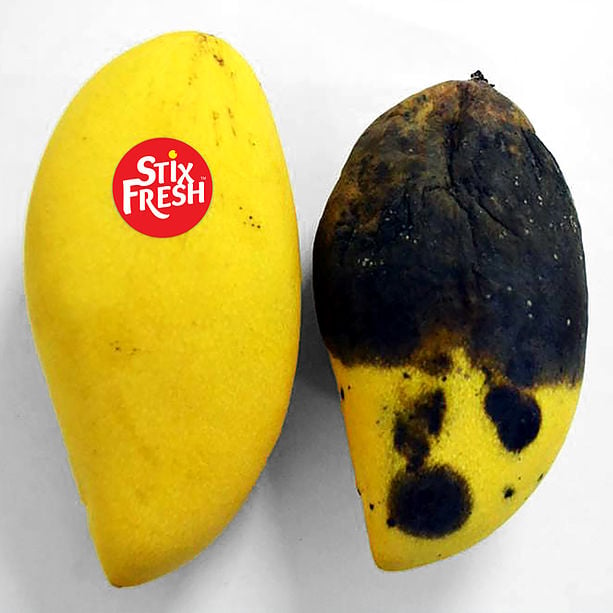
Food waste is one the greatest challenges of our time, and fruits and vegetables are particularly problematic, as an estimated 52% of harvests go bad before reaching consumers. But one Malaysian company claims to have come up with a simple and effective solution to this problem – a tiny sticker that keeps fruits from spoiling […]
Man Claims That Eating Only Fruit for Eight Years Has Made Him Superhuman
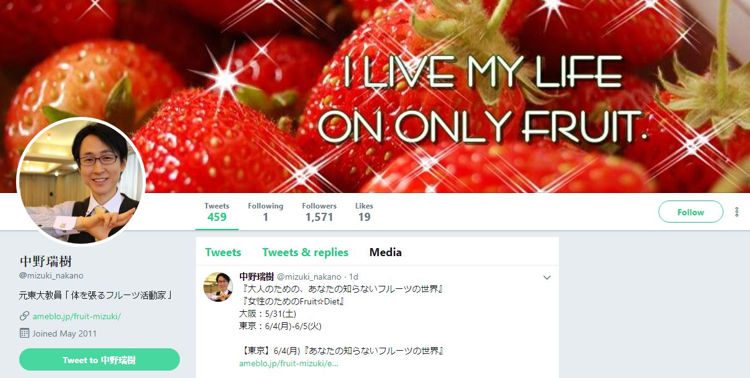
Mizuki Nakano, a former professor at the University of Tokyo, in Japan, has been consuming only fruit for the last eight years, even shunning water and relying on fruit juices for hydration. He recently came on a Japanese TV show to say that his fruit-only diet has caused his body to somehow convert nitrogen in […]
Japanese Farmers Develop “Incredible” Banana with Edible Skin
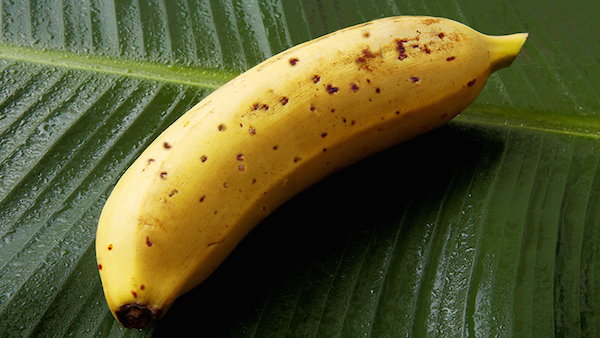
Fruit farmers in Okayama, Japan, have managed to make peeling a banana optional by developing a special variety with edible skin. The peel of their “Mongee Banana” is not particularly tasty, but it is considerably thinner and far less bitter than that of regular bananas, making it 100% edible. To create the incredible Mongee – […]
Fruit Grower Creates Apples That Don’t Turn Brown When Cut or Bruised
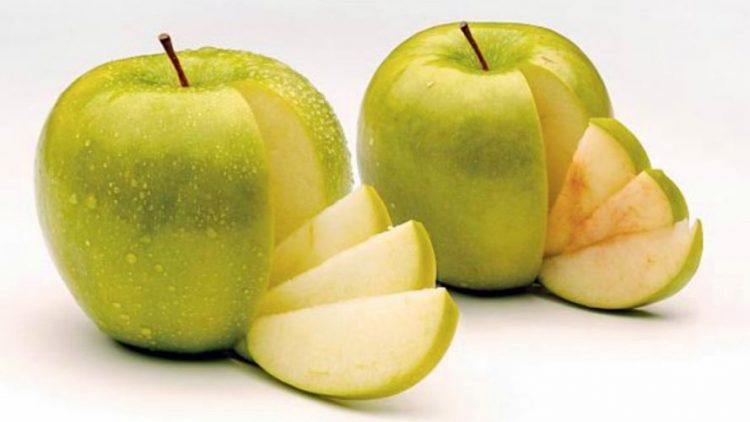
Arctic Apple is the world’s first genetically engineered apple that doesn’t turn brown after being cut or bruised. It was developed by Canadian company Okanagan Specialty Fruits and is already being sold in select grocery stores. When the cells of conventional apples are damaged, such as when they are cut, bitten into or bruised, an enzyme […]
Genetically-Modified Pink Pineapples Are Coming to a Grocery Store Near You
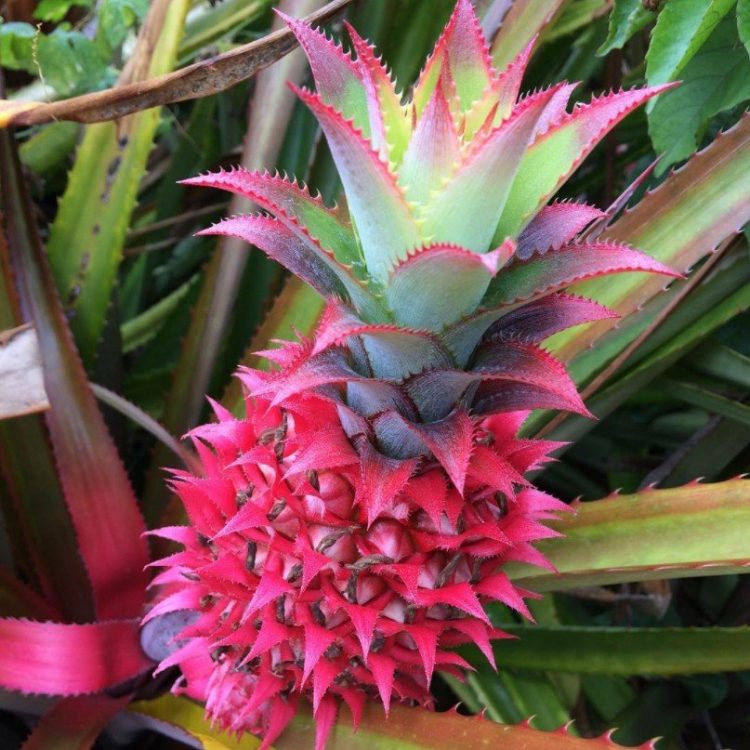
Thanks to genetic engineering, pink pineapple isn’t just a product of Photoshop, anymore. It’s an actual product and it’s coming to a grocery store near you, very soon. Del Monte Fresh Produce, one of the world’s largest produce suppliers, has been working on pink pineapple for over a decade, and in December of last year, […]
Honk Kong Supermarket Sells Individually-Packaged Strawberries for $22
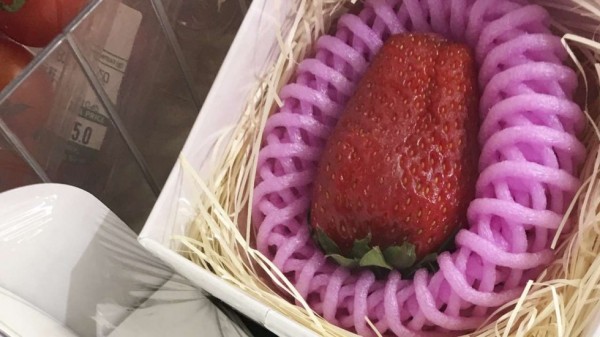
Looking for an original Valentine’s Day gift? How about a special Kotoka strawberry hand-picked in Japan that comes pre-packed in a special gift box? It’s said to be very tasty, and it only costs $22. City’super, a supermarket chain in Hong Kong, has come under fire recently for selling what many have called “the most […]
Man Pays $11,000 for a Bunch of Grapes
A grocery store owner in Japan recently paid 1.1 million yen ($11,000) for a bunch of grapes of the Ruby Roman variety. He now plans to put them on display in his store and then give them to customers as taste samples. Special fruits are a status symbol in Japan, sort of like rare wines in […]
Swiss Scientists Create ‘Sparkling Apple’ That Feels Like a Fizzy Drink in Your Mouth

If you’re a soda addict trying to switch to healthy food, then the new ‘Paradis Sparkling’ apple is just the thing for you. With a single bite, your mouth will be filled with sweet effervescent juice that replicates the sensation of sipping on a fizzy drink. The new Paradis Sparkling apple is the product of […]
Apple Variety Aptly Named ‘Surprize’ Hidest Pink Surprise Inside

The ‘Surprize’ apple looks deceptively normal from the outside – its yellowy-orange exterior gives no indication of the surprise waiting inside. Take one bite though, and its pale-pink flesh is bound to leave you shocked and confused for a second. The new variety of apples is currently available in 120 Tesco stores across the UK, […]
These Panty-Wearing Peaches Are All the Rage in China

Fruit vendors in China came up with a novel idea to sell peaches for the romantic Qixi festival on August 2. They put a sexy spin on the otherwise innocent fruit by slipping some specially designed panties on them! It’s actually quite amusing, how closely the lingerie-donning peaches resemble a woman’s backside. It all started […]
The Infamous Rainbow Grapes – Are They Real?

With digital software like Photoshop being used ever so often to alter things so perfectly, it’s hard to tell what’s real anymore. Take these photos of the so-called ‘rainbow grapes’ that have been doing the rounds online for about a month. They’re about the coolest-looking fruit I’ve ever seen, but are they real? Well, yes […]
Black Sapote – The Chocolate Pudding Fruit

Throughout my childhood I wondered why fruits and vegetables don’t taste as good as chocolate, not knowing that one actually did: the black sapote. It’s probably the only fruit in the world that comes close to tasting like heaven. Or chocolate pudding. Same thing in my book. The black sapote doesn’t just taste nice, it’s […]
Grapple – The Unique Apple That Tastes Like Concord Grapes

If you love the texture of apples but hate their taste, then Grapples are just the thing for you. These unique fruits look like nice fresh apples but have a completely different flavor. Produced by Todd Snyder of C&O Nursery in Washington, Grapples are apples that taste exactly like Concord grapes. According to the Grapple […]
21-Year-Old Woman Has Never Eaten a Piece of Vegetable or Fruit

Faye Campbell, of Suffolk, UK, has been exclusively eating junk food for the last 16 years. While most women would probably have serious weight problems by sticking to this eating habit, Faye is actually regular-sized and weighs just 9 stones and 12 pounds (a bit over 62 kilos). The woman doesn’t just avoid eating fruit […]
Japanese Shop Sells Perfect Fruits as Luxury Items

Tokyo’s Sembikiya Fruit Parlor looks like a luxurious jewelry store and the prices of the items on offer aren’t too far off either, only instead of diamonds and gold this place sells fruits. If you’re looking for perfectly shaped, delicious-tasting cantaloupes, apples, grapes or any other Japanese fruits, Sembikiya is where you’ll find them, but […]
